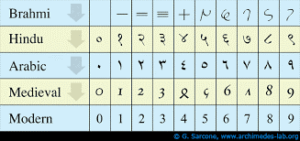
How early human beings began to communicate with each other?
The first humans were communicating with each other long before the development of language. There are many theories about the origin of language and what it may have been based on, but as of now, we don’t know for sure.
One popular theory is that language may have been sparked by cooking. Cooked meat is a powerful stimulus that can elicit strong emotional responses in humans, which may have led to the development of words to describe these emotional states.
Another theory suggests that language may have been based on singing and chanting. Chanting and singing are very rhythmic activities, and it is thought that these activities may have helped early humans to coordinate their movements and form simple sentences.
However, the origins of language remain a mystery, and we may never know for sure what sparked the development of this special form of communication.
The origins of various languages
There is much debate surrounding the origins of various languages. This is due to the fact that linguistics is a relatively new science and there is still much to learn about the origins and development of language. However, some theories suggest that all languages come from a common ancestor.
Some linguists believe that all human languages have a root in the language of the apes. This is because apes are the only species that can communicate with each other using sign language.
Other linguists believe that all human languages come from a single source, which is the language of the gods. This theory is based on the fact that all human cultures have stories about the gods and their activities.
The development of grammar
There are many theories about the development of grammar. Some say that grammar started out as a way to communicate effectively across vast distances. Others say that grammar was developed as a way to distinguish between different languages.
Regardless of the reason, it is clear that grammar has played a fundamental role in the development of human civilization.
The origins of pronouns
What pronouns do we use?
There are many theories about the origins of pronouns and the languages we speak today. Some believe that pronouns originated from animal references. For example, in French, they use “on” to refer to “them” because of the word “on” meaning “one”.
Others believe that pronouns originated from objects. For example, in Spanish, they use “el” to refer to “him” because “el” means “the”.
Another theory is that pronouns originated from actions. For example, in German, they use “er” to refer to “him” because “er” means “he does”.
There are many theories about the origins of pronouns and the languages we speak today. However, the most popular theory is that pronouns originated from objects.
The origins of numerals
Though many theories have been put forward over the years, the origins of numerals remain a mystery. However, some believe they may have
The most popular theory suggests that numerals originated in India around the 4th millennium BC. At this time, people began to use a system of base 10 to represent numbers.
This system consisted of ten symbols, each of which represented a different power of 10. For example, the symbol for 10 was a hand with five fingers extended.
The symbols for 1 through 9 were then created by adding these symbols to the base 10 symbol. For example, the symbol for 11 was the combination of the base 10 symbol and the symbol for 1.
numerals were then used to represent numbers in a much more efficient way.
The origins of words
Many linguists believe that all human languages originated from a single source. They theorize that all human beings descended from a single population that migrated out of Africa about 200,000 years ago. From this population, some of the individuals began to speak what we now call proto-languages.
These proto-languages began to diverge over time and eventually spawned a number of different languages. Some of these languages, such as English, Spanish, and French, are very similar to one another.
Others, such as Japanese and Mandarin, are much more different from one another.
Still, other proto-languages, such as Urdu and Swahili, have completely disappeared.
The origins of syntax
Syntax is the grammar of a language. The origins of syntax are still up for debate, but some linguists say it may have originated with gestures.
Others hypothesize that syntax might have started with the formation of words. And still others believe that syntax might have originated with music.
Whatever the case may be, syntax is an important part of language and without it, communication wouldn’t be possible.
The origins of semantics
The origins of semantics are an interesting topic to speculate about. Some linguists believe that semantics originated as a way to categorize words. Others believe that semantics originated as a way to communicate ideas.
Regardless of the origins, semantics is an important part of language. Semantics helps us to understand the meanings of words and phrases. It also helps us to realize the interactions between words.
For example, the word “dog” has a lot of different meanings. One meaning is “a canine mammal of the family Canidae.” Another meaning is “a person who habitually or abusively criticizes others.” And still another meaning is “a light meal eaten as an afternoon snack.”
The origins of morphology
As we all know, morphology is the study of the formation of words and their parts. But where did this field originate?
The origins of morphology can be traced back to the ancient Greeks. They were the first to conceive of the idea that words could be formed from other words. They also believed that words could change their form over time.
This theory is still considered to this day.
The origins of syntaxes
It’s been argued for centuries that different languages have different origins. Theories about the origins of syntaxes abound, with many believing that different languages evolved in different ways.
One popular theory is that syntaxes evolved from gestures used to communicate. For example, it’s been suggested that the gestures used to indicate who was talking and who was listening evolved into syntaxes.
Others believe that syntaxes evolved from sound patterns used to communicate. For example, it’s been suggested that the use of words to indicate different moods or tones evolved into syntaxes.
Yet others believe that syntaxes evolved from the combinations of words used to communicate. For example, it’s been suggested that the use of prefixes and suffixes to create new words evolved into syntaxes.
Conclusion
So there are many theories about the origins of syntaxes, and it will likely continue to be debated for years to come. What is certain, however, is that syntaxes are an important part of all languages and are responsible for the way words are arranged and the way sentences are structured.
We hope you enjoyed the blog post of Languages Unlimited about early speculations about the origin of various languages. This topic is fascinating and held many people’s interest for centuries. We hope that our post helped you to learn more about the origins of various languages and to appreciate the linguistic diversity of the world.
